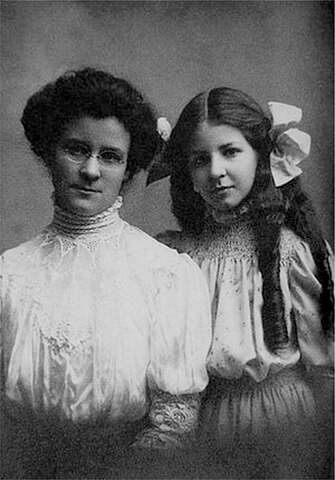
What is the Myers Briggs personality test? The Myers Briggs personality test is a psychological test that categorizes people into one of 16 different personality types. It is a fun test to take, but it is not scientifically accurate. It’s official name is the Myers-Briggs Type Indicator (MBTI).
The MBTI is named after Katharine Cook Briggs and her daughter Isabel Briggs Myers, who came up with the test in 1944. They had started working on the test in 1923 after Katharine Briggs read a copy of a Carl Jung book called “Psychological Types”. They spent a long time working on the theory behind their test before publishing it in 1944. They hoped that it would be used to help women find jobs that matched their personality types during World War 2. Neither Myers or Briggs had studied psychology at university and they were both self-taught. The MBTI is currently the world’s most popular test of psychological type and it is widely used by universities and companies. Approximately 2 million adults in the US take the test every year. It is thought that in the US alone, 10,000 businesses, 88 of the Fortune 100 companies, 2,500 colleges and universities, and 200 government agencies rely on the test to analyze the personalities of prospective students or employees. So, how does the MBTI work and is it reliable?
The MBTI works by asking a series of questions to attempt to categorize the test taker into four different areas. Each one of these areas is given a letter. The areas are extraversion and introversion, which are given the letters E and I. Sensing and Intuition, which get S and N. Thinking and feeling, which get T and F. Judging and perceiving, which get J and P. The results of your answers to the test will give you four letters that then correspond to the your personality and there are 16 possible combinations of personality types. For example, if you get ISTJ, then you are introverted, sensing, thinking, and judging. That means you basically are reserved, practical, and quiet. Or, you could get INFJ, which is what my first attempt that this test gave me, which is Introverted, intuitive, feeling, and judging. This means, apparently, that I am creative and analytical. Or, as one site I found puts it, I am an “easy-going perfectionist.” I kind of like that.
So, the most important question is how reliable are these tests? The answer is not tremendously. However, that is not to say that Myers and Briggs made up something that has no scientific basis to it. They spent several decades researching the theories behind their personality indicator and they made a test that they believed was completely accurate. They came up with a system that works well, but is just not reliable and is not something that should be used by professional organizations.
There are several problems with the MBTI and the first is general reliability. If something is scientifically provable, it should give the same result each time. If you want to test gravity on Earth, and you drop an apple from a specific height and time how long it will take to reach the ground, you will get the same result each time. Well, removing small interferences such as wind, the weather, height above ground. Although, if the experiment was repeated with the same conditions each time, the same result will be expected. This is not so for the MBTI. People that take the test a second or a third time are very unlikely to get the same result. Apparently, between 50 and 75% of people that retake the test after five weeks get a different result, which means that it is not a scientific test. Another problem is that the test doesn’t take scales into account. It only classifies for introverted or extroverted, for example, while there are many variations along that axis. It is also not true that there are only 16 different types of personality.
Another problem is the fact that all of the questions are available online and you can skew the test in any way you choose. When answering the questions, it is pretty obvious what answers you should give to attain a certain type of personality. And there is also the use of Barnum statements in the results. These are statements that can simultaneously apply to a range of people. And one of the most important problems is that the test has been scientifically analyzed by the company that makes the test. They also sponsor most of the experts online that argue for the credibility of the test. That sparks of the oil industry paying experts to say that climate change is a fad. If something is reliable and scientifically provable, the company that profits from the test wouldn’t have to sponsor people to test it. But, what would I know? I’m only INFJ. And this is what I learned today.
Try these:
Sources
https://www.themyersbriggs.com/en-US/Campaigns/All-About-the-MBTI-Assessment
https://www.verywellmind.com/infj-introverted-intuitive-feeling-judging-2795978
https://en.wikipedia.org/wiki/Myers%E2%80%93Briggs_Type_Indicator
https://www.16personalities.com/infj-personality
Image By Unknown, Courtesy of Katharine Myers – Katharine Myers, Public Domain, https://commons.wikimedia.org/w/index.php?curid=48805871
